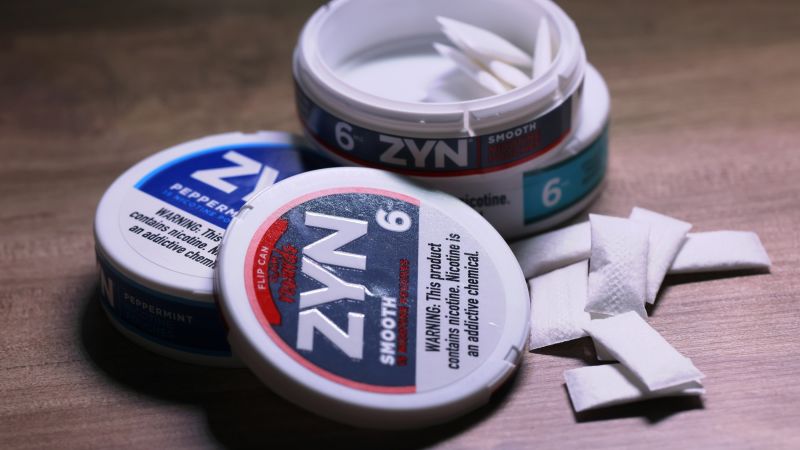The tobacco industry has faced numerous challenges from governments around the world, with the latest being the introduction of Zyn, a tobacco-free product owned by Philip Morris International. Zyn is a flavored oral nicotine pouch that delivers nicotine more effectively than a cigarette, without the need for chewing or spitting. Its popularity has been driven by factors such as convenience, online advertising positioning it as a healthy alternative to cigarettes, and the diversification of tobacco companies’ business models.
Zyn’s advertising focuses on simplicity, discretion, and satisfaction, using blue and white colors to emphasize convenience, flavor variety, and versatility in different situations. The brand was test marketed in 2014 and went national in 2019, quickly becoming the leading nicotine pouch on the market. Shipments of Zyn pouches in the United States have skyrocketed, prompting Phillip Morris International to invest $600 million in a new manufacturing facility to meet demand.
Users like Danny Whalen have turned to Zyn as a cleaner and more convenient alternative to chewing tobacco. While perceived as safer than traditional tobacco products due to the lack of cancer-causing chemicals, the long-term health effects of nicotine pouches are still unknown. Whalen, for example, wants to quit Zyn due to anxiety caused by nicotine but finds it difficult due to its addictive nature. Zyn’s aggressive marketing strategies, including a significant increase in digital advertising and the involvement of influencers, have also contributed to its popularity among young men.
Despite claims from Philip Morris International that Zyn is not intended or sold as a smoking cessation product, public health experts warn that the brand’s marketing efforts may perpetuate nicotine addiction among existing users and introduce it to younger individuals. Nicotine addiction can lead to various health issues, including heart disease, vascular disease, reproductive disturbances, and more. Some experts suggest that a more effective public health approach would involve limiting the availability of nicotine pouches to programs designed to help tobacco and nicotine addiction.
In conclusion, Zyn’s rapid rise reflects the tobacco industry’s shift towards harm-reduction initiatives to sustain profitability. While nicotine pouch products may have lower levels of toxicants than traditional tobacco products, concerns remain about the impact of marketing strategies that may contribute to nicotine addiction among consumers. Experts emphasize the need for a more targeted approach to promote health and reduce nicotine addiction, rather than mass marketing efforts that could potentially drive a large pool of nicotine addicts.













